Become an Enrolled Agent: Step-by-Step Guide
Passing the Enrolled Agent (EA) exam opens the door to...
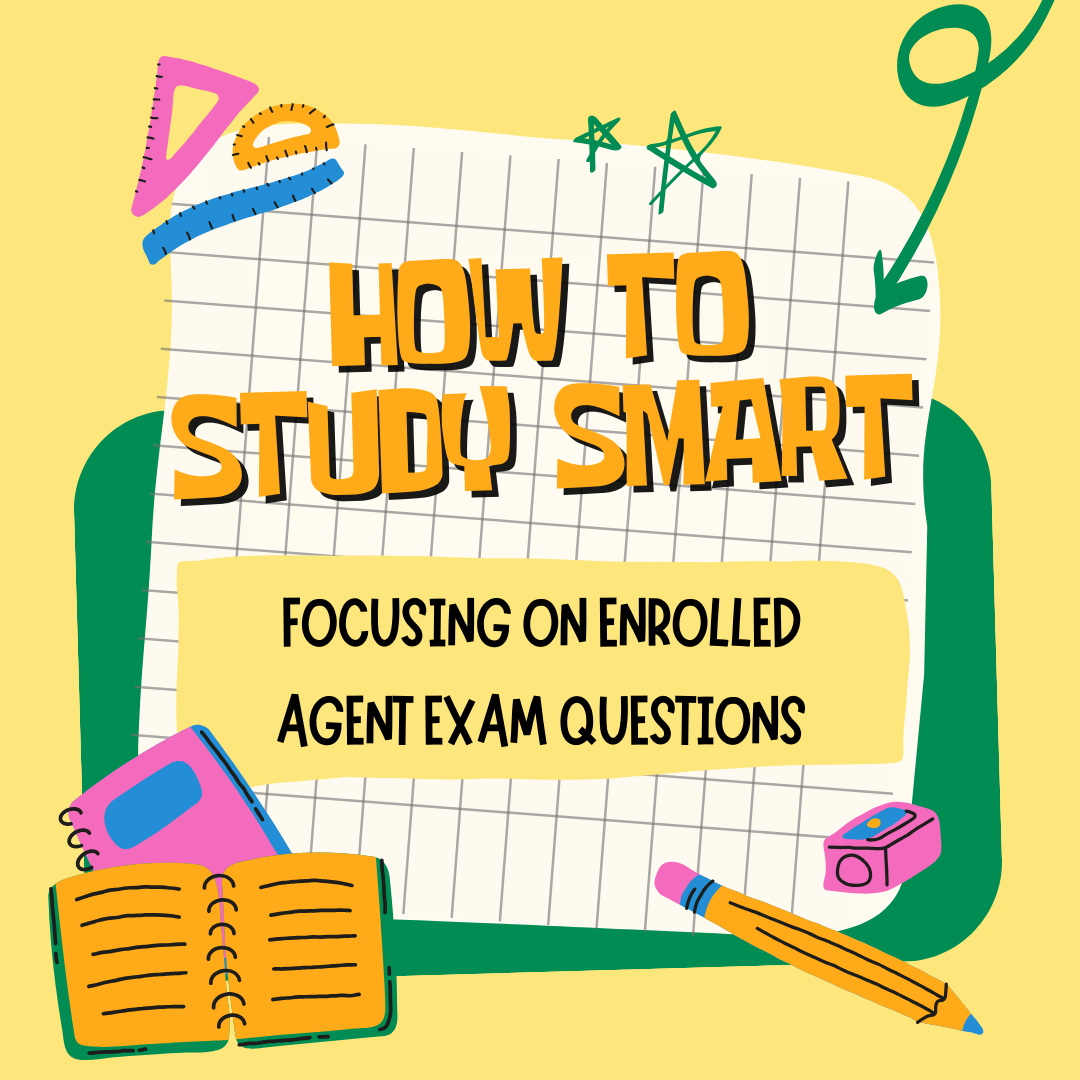
Taking the leap to become an enrolled agent opens up a world of opportunities in the domain of tax representation and compliance. The pathway leading to this title is paved with the enrolled agent exam questions. This piece provides a glimpse into the intricacies of the enrolled agent exam, discussing its format, nature of questions, study methodologies, and the best resources at your disposal.
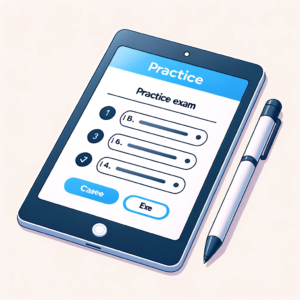
The enrolled agent exam spans across three distinct sections, each zooming into various facets of tax laws and protocols. Part 1 dives deep into individual taxation, covering domains like income, deductions, and credits. Part 2 is centered on business taxation, encompassing areas such as corporations, partnerships, and the likes of estates and trusts. Lastly, Part 3 offers insights into representation, practices, and methodologies, shedding light on ethics, Circular 230, and the nuances of tax court protocols.
Let’s create a scenario for clarity: imagine gearing up for Part 2 of the enrolled agent exam. This section will evaluate your grasp over business taxation, for instance, the nuances of partnership tax regulations. Mastery over how income, deductions, and credits are shared among partners becomes vital.

Success in the enrolled agent exam hinges on an effective and comprehensive study plan that encompasses all exam topics. This allows you to allocate adequate time to grasp and revisit every tax law and procedure. Tapping into study materials and courses tailor-made for the enrolled agent exam questions ensures thorough coverage and targeted learning.
Consider this: you’ve chosen to strategize your study for Part 1 of the enrolled agent exam. Weekly slots are assigned to deep-dive into individual taxation elements like income, deductions, and credits. A robust study guide simplifies content into bite-sized sections, and hands-on practice questions test your comprehension.
In addition to imbibing the content, routinely practicing with enrolled agent exam questions and mock tests enhances preparation. Such tools gauge your proficiency, pinpoint weak spots, and offer a sneak peek into the exam’s structure and content. For instance, the EA Exam Test Bank product allows you to create full or mini practice exams. Engaging with these questions fortifies your understanding and instills confidence for the D-day.
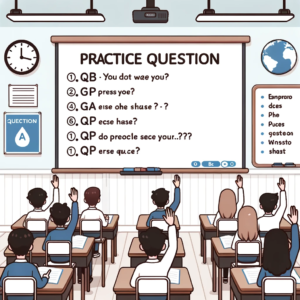
Employing adept tactics when answering the enrolled agent exam questions can significantly amplify your scores. Time management emerges as a pivotal strategy. Assign fixed durations for each question, ensuring you don’t dwell too long on any single one. If you stumble upon a tough question, moving ahead and revisiting it later might be more fruitful.
For instance, while navigating the exam, you might be stumped by a particular question. Rather than getting ensnared, you can choose to skip and later circle back with renewed focus.
Thoroughly comprehend each question before marking an answer. Key terms or expressions often hint at the right solution. Strategies like elimination can weed out patently wrong options, thus bolstering your odds of landing the correct answer.
For example, if you’re confronted with a query about a specific tax deduction, pinpointing related terms can filter your choices. Unrelated options can be disregarded, heightening the chances of the right pick.
During the exam, serenity and concentration are your allies. Stress can mar performance, so deep breaths and a positive approach are beneficial. This calm demeanor can curtail silly mistakes and boost clarity when tackling tough EA exam questions.

Multiple choice queries form a substantial part of the EA exam prep. Grasping their structure and effective strategies is quintessential. The elimination technique is particularly potent; start by discarding obviously wrong answers, enhancing the probability of marking the right one.
For instance, a question about a tax credit can be approached by excluding unrelated options, thereby simplifying the decision.
Focus on critical terms within the question, as they often guide you towards the answer. Words like “not” or “except” can flip the question’s intent, necessitating careful reading.
For example, encountering “except” signifies that one option deviates from the given criteria. Recognizing this helps you address the question effectively.
To hone skills in multiple choice questions, diverse practice is advised. This familiarizes you with various formats and nurtures strategies for answering.
One could, for instance, engage with a bank of enrolled agent exam questions offering a plethora of multiple-choice questions. Practicing this diversity acclimatizes you to different situations, thereby refining your ability to apply your knowledge contextually.

One of the best ways to grasp the enrolled agent exam’s structure and content is through practicing with sample questions. EA Exam Test Bank is an invaluable tool offering a vast collection of practice questions spanning every exam topic. Diving into these enrolled agent exam questions lets you solidify your understanding, pinpoint areas needing more review, and get a feel for the kind of questions you’ll face on the actual test.
For instance, imagine you’ve been pouring over the tax credits topic and wish to gauge your grasp. By tapping into the EA Exam Test Bank, you can pull up a series of enrolled agent exam questions centered on tax credits. Tackling these questions will shed light on any knowledge gaps, enabling you to target specific areas in your studies.
Enrolled agent exam questions are instrumental in gauging where you stand and pointing out areas requiring more emphasis. They allow for the practical application of your knowledge across various scenarios, bolstering your understanding of tax rules and methods.

Enrolled agent exam sample tests aim to mirror the real exam ambiance. These mock tests offer a chance to gauge your exam readiness and see where you rank. Each segment of the enrolled agent exam comes with its designated sample tests that touch upon the content specific to that segment.
Attempting these sample tests acclimatizes you to the actual exam’s tempo and layout, highlighting areas that may necessitate further study. Emulating the exam setting through these practice tests can ease any test-day jitters and bolster your confidence heading into the real thing.
To underscore the value of these sample tests, consider this scenario: You’ve wrapped up your Part 3 enrolled agent exam studies and are keen to see how ready you are. By undertaking a practice test tailored for Part 3, you emulate the actual exam environment, allowing you to appraise your standing. This ensures you identify and refine any areas needing extra attention utilizing enrolled agent exam questions.

Going over the answers and their rationales after working on practice questions is pivotal in grasping the underlying concepts and the logic steering the correct choices. These thorough explanations can pinpoint any misconceptions, aiding in refining your understanding. Familiarizing yourself with the provided explanations equips you to handle similar enrolled agent exam questions during the real test.
Picture this: You’ve taken a series of practice questions on tax deductions but have hit a few snags. By dissecting the provided in-depth solutions and justifications, you can catch and rectify your oversights, deepening your conceptual clarity. This lays the groundwork for tackling similar questions confidently in the actual exam.
Many candidates find that practicing with enrolled agent exam questions is the most effective way to prepare for the test. Study tools crafted precisely for the enrolled agent exam streamline your preparation. They’re honed to the exam’s scope, averting unnecessary expenditure of time and money on extraneous materials. Employing these curated resources sharpens your focus on the crux, ensuring you target the most pertinent content.
Imagine leveraging an enrolled agent exam study guide that encompasses every exam theme. Such a guide shields you from the time-drain of scouting for the right resources, letting you zero in on pertinent content.
To get a realistic sense of the test, make sure your study material includes actual enrolled agent exam questions from previous years. Crafting a systematic study plan is a linchpin for fruitful exam prep. A well-laid-out study timeline can offer a disciplined approach, ensuring every topic gets its due attention. Employing varied study tools, like flashcards or mnemonics, can uplift information retention and enliven the study process.
Say, for instance, you’re delving into the tax court procedures in Part 3. Creating flashcards with pivotal terms related to this topic can aid in periodic review and solidify your grasp.
The enrolled agent exam is split into three distinct parts, with each addressing various tax-related subjects. A well-balanced study plan, bearing in mind the significance and challenge level of each part, ensures an exhaustive prep.
Suppose you discern that Part 1, zeroing in on individual taxation, holds more weightage. Such insights can guide you to allocate more prep time to this part, securing a robust grip on its nuances.
Varied question styles necessitate diverse strategies. For instance, scenario-driven questions challenge you to contextualize your knowledge. Such questions call for meticulous reading, distilling the essence, and applying relevant tax stipulations.
Let’s visualize a scenario-centric question centered on a fictional tax circumstance for a firm. By dissecting the given data and deploying your business tax acumen, you can hone in on the apt response.
Beyond conventional study guides and courses, numerous other resources can amplify your enrolled agent exam prep. Engaging in online discussions can fetch insights, tips, and additional resources, bolstering your preparation efforts.
For example, if you’re on the lookout for supplementary prep aids, diving into online discussions can be enlightening. This collaborative space allows for knowledge sharing, queries, and varied perspectives on exam content.
Managing exam-related stress and anxiety is crucial for optimal performance on the enrolled agent exam. Excessive stress and anxiety can impair your ability to think clearly and recall information. To manage exam stress, it is important to practice relaxation techniques such as deep breathing exercises and mindfulness techniques. These techniques can help calm your mind and reduce anxiety.
Physical and mental preparation strategies for the exam day are also important. Getting a good night’s sleep before the exam and having a healthy breakfast can contribute to your overall well-being and help you approach the exam with a clear and focused mindset.
For instance, let’s say you are feeling anxious about the enrolled agent exam. To manage your stress, you incorporate relaxation techniques into your daily routine. You practice deep breathing exercises and mindfulness techniques to calm your mind and alleviate anxiety. On the day of the exam, you ensure that you have a restful night’s sleep and start your day with a nutritious breakfast. These physical and mental preparation strategies help create an optimal state for exam performance. Familiarity with the format and style of enrolled agent exam questions can help reduce test-day anxiety.

In conclusion, the enrolled agent exam is a significant milestone for individuals pursuing a career in tax representation and compliance. By following effective study strategies, utilizing practice questions and exams, and utilizing recommended study resources, you can increase your chances of success on the exam. Remember to manage your time effectively during the exam, utilize strategies for multiple-choice questions, and stay calm and focused. With dedication and preparation, you can take the next step towards becoming an enrolled agent and achieving your professional goals.
Some review enrolled agent courses offer interactive quizzes with real-time feedback on enrolled agent exam questions to enhance understanding. When creating a study plan, allocate time specifically for tackling enrolled agent exam questions to gauge your readiness. Candidates are advised to spend a good amount of time analyzing the explanations for incorrect answers to enrolled agent exam questions. By consistently practicing and reviewing, you can improve your accuracy and speed in answering enrolled agent exam questions on the actual exam day.

Passing the Enrolled Agent (EA) exam opens the door to...
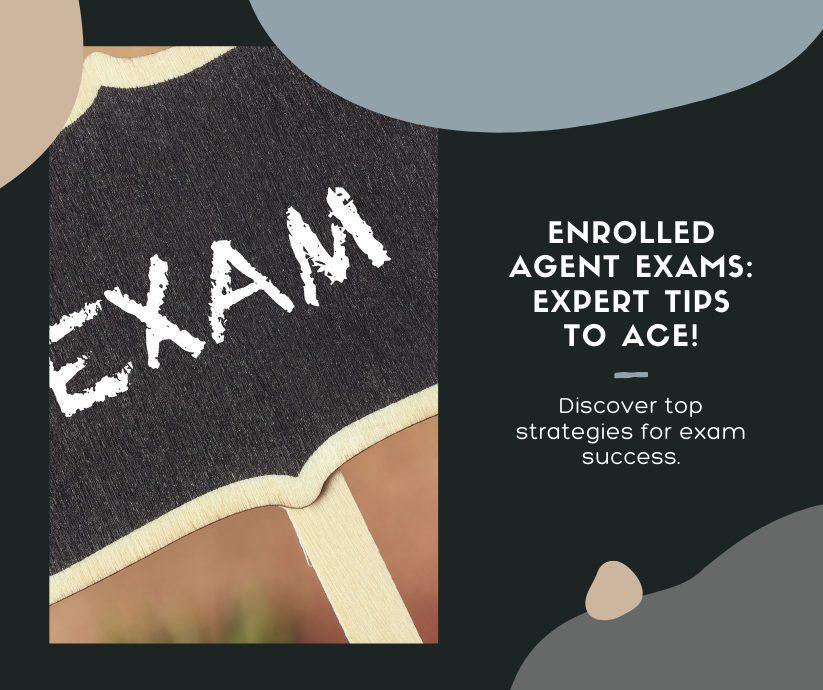
The journey to becoming an Enrolled Agent is both challenging...

Imagine gazing at a promising future as a tax professional.However,...
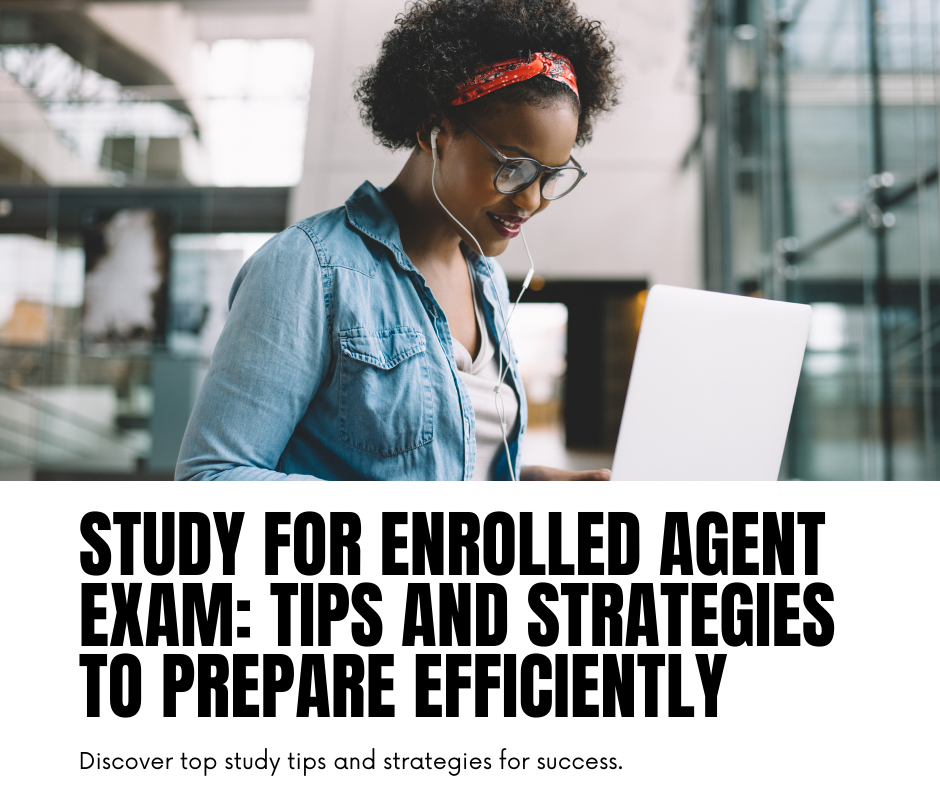
Achieving the status of an Enrolled Agent is a significant...
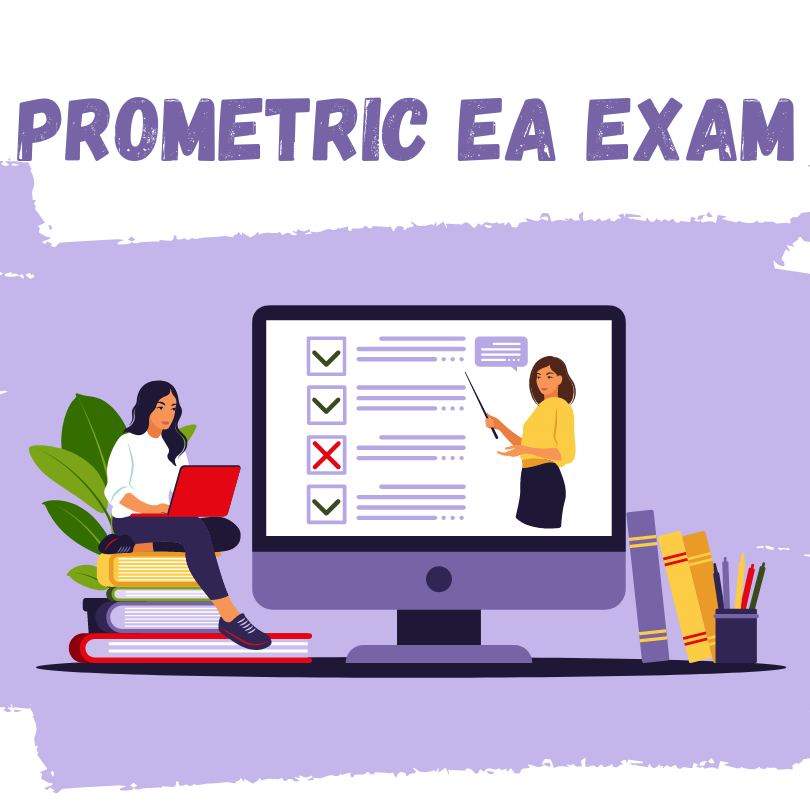
Are you envisioning a successful career as an Enrolled Agent?It's...